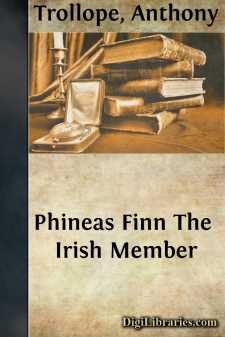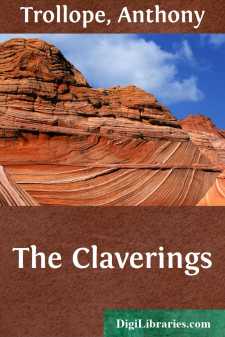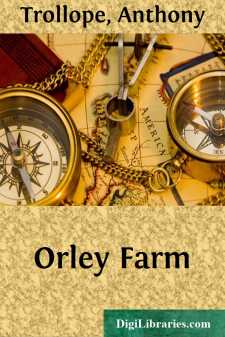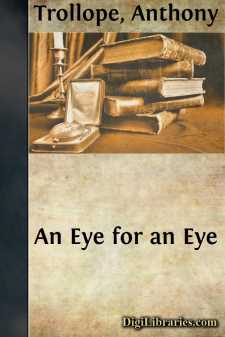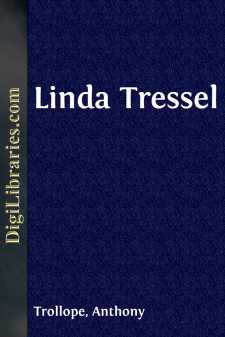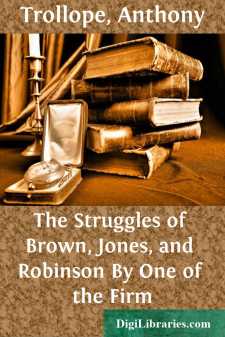Categories
- Antiques & Collectibles 13
- Architecture 36
- Art 48
- Bibles 22
- Biography & Autobiography 813
- Body, Mind & Spirit 142
- Business & Economics 28
- Children's Books 14
- Children's Fiction 11
- Computers 4
- Cooking 94
- Crafts & Hobbies 4
- Drama 346
- Education 46
- Family & Relationships 57
- Fiction 11829
- Games 19
- Gardening 17
- Health & Fitness 34
- History 1377
- House & Home 1
- Humor 147
- Juvenile Fiction 1873
- Juvenile Nonfiction 202
- Language Arts & Disciplines 88
- Law 16
- Literary Collections 686
- Literary Criticism 179
- Mathematics 13
- Medical 41
- Music 40
- Nature 179
- Non-Classifiable 1768
- Performing Arts 7
- Periodicals 1453
- Philosophy 64
- Photography 2
- Poetry 896
- Political Science 203
- Psychology 42
- Reference 154
- Religion 513
- Science 126
- Self-Help 84
- Social Science 81
- Sports & Recreation 34
- Study Aids 3
- Technology & Engineering 59
- Transportation 23
- Travel 463
- True Crime 29
Phineas Finn The Irish Member
by: Anthony Trollope
Description:
Excerpt
CHAPTER I
Dr. Finn, of Killaloe, in county Clare, was as well known in those parts,—the confines, that is, of the counties Clare, Limerick, Tipperary, and Galway,—as was the bishop himself who lived in the same town, and was as much respected. Many said that the doctor was the richer man of the two, and the practice of his profession was extended over almost as wide a district. Indeed the bishop whom he was privileged to attend, although a Roman Catholic, always spoke of their dioceses being conterminate. It will therefore be understood that Dr. Finn,—Malachi Finn was his full name,—had obtained a wide reputation as a country practitioner in the west of Ireland. And he was a man sufficiently well to do, though that boast made by his friends, that he was as warm a man as the bishop, had but little truth to support it. Bishops in Ireland, if they live at home, even in these days, are very warm men; and Dr. Finn had not a penny in the world for which he had not worked hard. He had, moreover, a costly family, five daughters and one son, and, at the time of which we are speaking, no provision in the way of marriage or profession had been made for any of them. Of the one son, Phineas, the hero of the following pages, the mother and five sisters were very proud. The doctor was accustomed to say that his goose was as good as any other man's goose, as far as he could see as yet; but that he should like some very strong evidence before he allowed himself to express an opinion that the young bird partook, in any degree, of the qualities of a swan. From which it may be gathered that Dr. Finn was a man of common-sense.
Phineas had come to be a swan in the estimation of his mother and sisters by reason of certain early successes at college. His father, whose religion was not of that bitter kind in which we in England are apt to suppose that all the Irish Roman Catholics indulge, had sent his son to Trinity; and there were some in the neighbourhood of Killaloe,—patients, probably, of Dr. Duggin, of Castle Connell, a learned physician who had spent a fruitless life in endeavouring to make head against Dr. Finn,—who declared that old Finn would not be sorry if his son were to turn Protestant and go in for a fellowship. Mrs. Finn was a Protestant, and the five Miss Finns were Protestants, and the doctor himself was very much given to dining out among his Protestant friends on a Friday. Our Phineas, however, did not turn Protestant up in Dublin, whatever his father's secret wishes on that subject may have been. He did join a debating society, to success in which his religion was no bar; and he there achieved a sort of distinction which was both easy and pleasant, and which, making its way down to Killaloe, assisted in engendering those ideas as to swanhood of which maternal and sisterly minds are so sweetly susceptible. "I know half a dozen old windbags at the present moment," said the doctor, "who were great fellows at debating clubs when they were boys." "Phineas is not a boy any longer," said Mrs....


